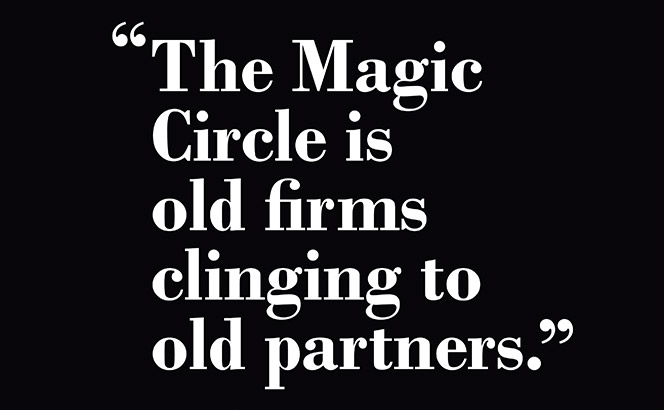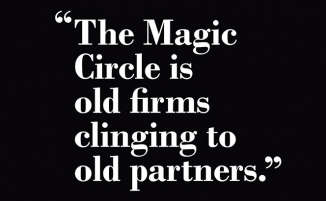A number of contacts have been telling me of late that Legal Business is gaining a reputation for being ultra-bearish on the Magic Circle. So entrenched is this view becoming that one Freshfields partner has apparently taken to claiming to colleagues that LB is talking down the Magic Circle in favour of US players because recruiters tell us to.
For the record, we have a church-and-state divide here and if any commercial partner wants to try to dictate our editorial line, I’d say: ‘Give it a try… and see what happens.’ But, more to the point, such comments misconstrue the basis on which we critique top City firms. London leaders have been a huge success story for corporate Britain – one that has failed to get the credit it was due in business circles. And, as a born Londoner, in as much as I get attached to law firms, there is an instinctive leaning towards wanting the local boys to do good. In short, we are not pointing out City leaders have faltered to revel in that failure. It is to make constructive arguments about what must be addressed if they are to renew themselves. We come not to bury the Magic Circle but to save it.
A UK legal industry in which the Magic Circle is comprehensively humbled – as is plainly now a risk within the next five years – will be diminished. Yes, the entitled arrogance of the club irritates many, but the group has also been a huge force for dynamic change in the profession at a global level, far more than any other equivalent. If law’s standard bearers cannot regain the remarkable form they showed between the mid-1980s and the banking crisis – powered by strong leadership, bold decision making and institutional agility – law firms as a whole will more likely fall prey to damaging incursions at the hands of New Law rivals. The Magic Circle were the profession’s original disruptors long before anyone thought to bore everyone senseless with news of their ‘innovations’.
The other reason to cite problems is more straightforward: basic maths. Performance trends over the last decade could not more clearly attest the problems facing the group if they were highlighted by dancers and fireworks.
A UK legal industry in which the Magic Circle is comprehensively humbled will be diminished.
Of course, they retain formidable assets and are overall still the dominant legal forces in Europe by some way, but they have ceded progressively more ground to US rivals in recent years. Relative financial performance has been indifferent against both American invaders and mid-tier rivals. They cannot long stand these trends continuing without being relegated to, in global terms, second-tier operators outside of the premier elite.
The majority of problems stem from the same strategic dilemma that has loomed threateningly over them for 20 years: what to do about the US. And this dilemma has exposed how weakened their ability has become to galvanise their partnerships to make the hard choices that are required.
As an industry observer, it is increasingly hard to see them making those tough calls, but I hope I am wrong. Global law falling to American homogeny will be a duller, less inventive place.














